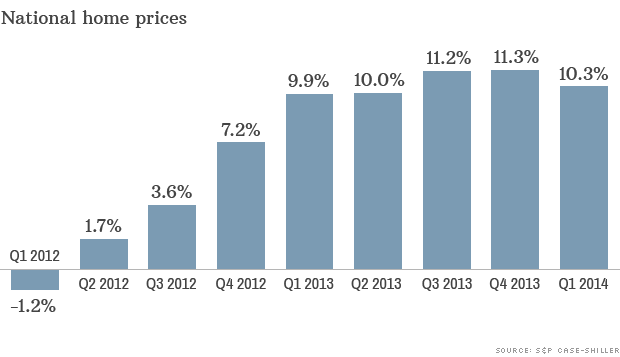When it comes to real estate many people might feel overwhelmed and confused. Here are some frequently asked questions that may help you understand real estate and your situation a little more:
Why should I buy, instead of rent?
Answer: A home is an investment. When you rent, you write a monthly check and that money is gone forever. However, when you own your home, you can deduct the cost of your mortgage loan interest from your federal income taxes, and usually from your state taxes. You can also deduct the property taxes you pay as a homeowner and the value of your home may go up over the years. Finally, you’ll enjoy having something that’s all yours – a place where you can call “your” home.
Can I become a homebuyer even if I’ve had bad credit, and don’t have much for a down-payment?
Answer: You may be a good candidate for one of the federal mortgage programs. Start by talking to a lender who can help you sort through your options. If they feel your financially not ready to buy, they will advise you on a plan that will get you ready to purchase later on.
Should I use a real estate agent?
Answer: Using a real estate agent is a very good idea. All the details involved in home buying can be mind-boggling. A good real estate professional can guide you through the entire process and make the experience much easier. An agent will be well-acquainted with all the important things you’ll want to know about a neighborhood you may be considering…the quality of schools, the number of children in the area, the safety of the neighborhood, traffic volume, and more. I will help you figure the price range you can afford and search the classified ads and multiple listing services for homes you’ll want to see. With immediate access to homes as soon as they’re put on the market, I can save you hours of wasted driving-around time. When it’s time to make an offer on a home, I can point out ways to structure your deal to save you money. And the best part is you don’t have to pay the agent anything!
How much money will I have to come up with to buy a home?
Answer: Well, that depends on a number of factors, including the cost of the house and the type of mortgage you get. In general, you need to come up with enough money to cover three costs: earnest money – the deposit you make on the home when you submit your offer, to prove to the seller that you are serious about wanting to buy the house; the down payment, a percentage of the cost of the home that you must pay when you go to settlement; and closing costs, the costs associated with processing the paperwork to buy a house. When you make an offer on a home, your real estate agent will put your earnest money into an escrow account. If the offer is accepted, your earnest money will be applied to the down payment or closing costs. If your offer is not accepted, your money will be returned to you. The more money you can put into your down payment, the lower your mortgage payments will be.
Closing costs, which you will pay at settlement, average 3-4% of the price of your home. These costs cover various fees your lender charges and other processing expenses. When you apply for your loan, your lender will give you an estimate of the closing costs, so you won’t be caught by surprise.
How do I know if I can get a loan?
Answer: Talking to a lender will help you evaluate your loan potential. A lender will know what kinds of mortgages that are offered and can help you a program that’s right for you. Once you find a program you like, the lender will then pre-qualify you for a loan. It is a good idea to do this before you start looking for a home because then you know what you can afford to spend, and it will speed the process once you do find the home of your dreams.
How do I find a lender?
Answer: You can finance a home with a loan from a bank, a savings and loan, a credit union, a private mortgage company, or various state government lenders. Shopping for a loan is like shopping for any other large purchase: you can save money if you take some time to look around for the best prices. Different lenders can offer quite different interest rates and loan fees; and as you know, a lower interest rate can make a big difference in how much home you can afford.
What do I need to take with me when I apply for a mortgage?
Answer: If you have everything with you when you visit your lender, you’ll save a good deal of time. You should have: 1) social security numbers for both you and your spouse, if both of you are applying for the loan; 2) copies of your checking and savings account statements for the past 6 months; 3) evidence of any other assets like bonds or stocks; 4) a recent paycheck stub detailing your earnings; 5) a credit report, which most lenders run for you when your there; 6) a list of account numbers and balances due on outstanding loans, such as car loans; 7) copies of your last 2 years’ income tax statements; and 8) the name and address of someone who can verify your employment. Depending on your lender, you may be asked for other information.
When I find the home I want, how much should I offer?
Answer: If we are working together I can help you here. When writing an offer I take several things into consideration: 1) Is the asking price in line with prices of similar homes in the area? 2) Is the home in good condition or will you have to spend a substantial amount of money making it the way you want it? 3) How long has the home been on the market? If it’s been for sale for awhile, the seller may be more eager to accept a lower offer. 4) How much do you really want the home? The closer you are to the asking price, the more likely your offer will be accepted. In some cases, you may even want to offer more than the asking price, if you know you are competing with others for the house.
So what will happen at closing?
Answer: When your offer gets accepted, we then open escrow. This can be a bit overwhelming since you will be signing many disclosures from your agent, the seller’s agent, escrow and your lender. Most of the disclosures that you will be signing will be with your agent, who will be explaining each document in detail and making sure you understand what your signing. Through the whole process I send you an updated chart with things we need to do before closing and things that have been completed such as, a home inspection, termite clearance, buyers disclosures signed, etc. This makes things more clear and less stressful.


